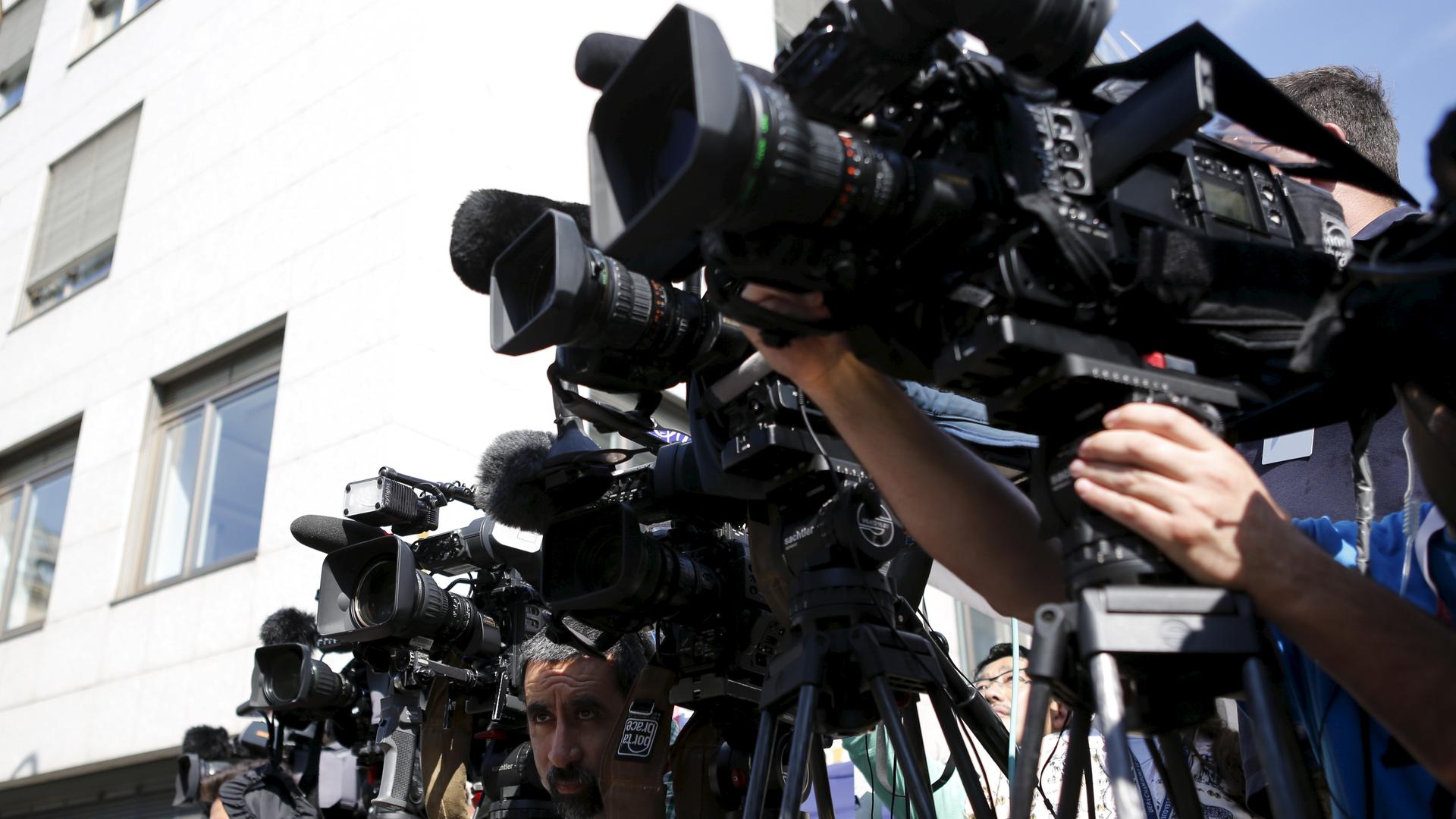Ever since Armenia began attacking Azerbaijani territories earlier this month, Iranian media outlets and journalists have largely avoided discussing the conflict. They have neither condemned the Armeanian aggression, nor supported it.
Yet, the Iranian security forces have drawn red lines for anyone protesting against Armenia’s attacks on Azerbaijani territories. The Iranian police have cracked down on pro-Azerbaijan demonstrators, according to the Iranian Human RIghts Activists News Agency, arresting several dozen of them as well as activists, many of whom are Turkish citizens residing in Iran.
While Iran’s state-affiliated media organisations, who are usually proactive in reporting on other conflicts, are completely avoiding the reporting of these detentions, the security forces have picked up protesters from various provinces, particularly from north and northwestern cities, such as Ardabil, Tabriz, Urmia, Meshkinshahr and Parsabad Moghan.
Security forces have reportedly used violence during these arrests, breaking arms or noses of several activists.
Relations between Azerbaijan and Armenia, the two former Soviet states, have been tense since 1991, when the Armenian military occupied Upper Karabakh, or Nagorno-Karabakh, an internationally recognised territory of Azerbaijan.
Four UN Security Council and two UN General Assembly resolutions, as well as many international organisations, have already demanded the withdrawal of the occupying Armenian forces, as they have clearly declared their presence in the region as illegal.
The OSCE Minsk Group — co-chaired by France, Russia and the US — was formed in 1992 to find a peaceful solution to the conflict. The trio has not made any substantial progress as yet.
Iranian media reaction to the Nagorno-Karabakh conflict
The Armenian army recently launched attacks on Azerbaijan’s civilian areas, killing several dozen people and damaging residential areas.
Iran’s Asriran news website, known for having an editorial slant that favours the government of President Hassan Rouhani, was the only one news organisation that spoke about the conflict with caution. “Azerbaijan acknowledges Upper Karabakh as its territory. Armenia denies this. Upper Karabakh declared its autonomy, but no country has officially recognized its independence,” Asriran said in one of its editorials, taking the path of neutrality.
Iran’s conservative Telegram channel ‘Al-Galibun‘, which is known for its closeness to Basij militia forces within Islamic Revolutionary Guard Corps and covers the Houthi rebels of Yemen as well militias such as Hashd al Shaabi and Hezbollah, did not refrain from calling the operation of the Azerbaijani army an act of “aggression”.
It also described it as a scandal saying it is very similar to “the disgrace that Saudi Arabia experienced during the ground war in Yemen.”
‘Etemad’ newspaper, known to be close to the reformists in Iran, holds Turkey responsible for the military conflict in Upper Karabakh, while the newspaper Cevan, also known to be close to the Islamic Revolutionary Guard Corps, claimed that Ankara has escalated the tension between Baku and Yerevan.
‘Iran should support Azerbaijan’
Yedullah Kerimipur, a lecturer from the Faculty of Political Sciences at Harezmi University in Tehran, criticised the situation via Iranian media outlets with a statement on Telegram:
”The United Nations Security Council (UNSC) issued four resolutions 823, 854, 879 and 884 on the occupation of Upper Karabakh by Armenia in 1993. In the first one, representatives of 15 member countries of the council fully attended the session and all voted in favor of Azerbaijan on Upper Karabakh.”
“President Rouhani should represent the conscience of all Iranians and feel the emotions of Azerbaijani people who founded Iran 519 years ago. He should have lamented for the martyrs of Karabakh. Iran should support that Upper Karabakh belongs to Baku,” Kerimipur added.










Discussion about this post